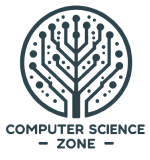What is a Health IT Specialist?
Health information technology specialists, often referred to as Health Information Administrators, are individuals who manage information as it pertains to health and health care. This individual analyzes, protects, and interprets health records to ensure quality patient care. Paper-based records are quickly being replaced, and as health informatics, and health information technology continues to evolve and improve, there has been an increase in job opportunities for qualified individuals.
Where do Health Information Administrators work?
- Physician’s Offices
- Home Care Agencies
- Professional and Technical Service Settings
- Public Health Agencies
Salary of a Health Information Administrator:
According to the Bureau of Labor Statistics, the median salary for Medical Records and Health Information Technicians is $37,110. Registered Health Information Administrators is $46,270.
Health Information Administrator Job Description:
Qualified individuals are competent professionals who hold at least an associate degree in Health Information Management, and are capable of working within specific computer networks, databases, and administrative systems. Those with more expertise will be able to analyze data, IT audit, and make data available and clear to patients. Perhaps one of the most important facets of Health IT specialists is that in protecting and assuring patient confidentiality particularly as it pertains to The Health Insurance Portability and Accountability Act (HIPPA). HIPPA ensures the enactment of something referred to as the “privacy rule” which is a set of national standards that protects certain health information as is mandated through the U.S. Department of Health and Human Services. This ensures that health information is properly protected while also allowing for the flow of health information needed to provide the best possible quality of health care to each individual.
The range of responsibilities and, along with those responsibilities the range of pay-grade will swing with education, position, years of experience, and specialization. Information Technology auditing for example requires the individual to evaluate an organizations’s technology infrastructure as well as that organization’s policies and operations to determine and ensure data integrity. Those with the ability to interpret data are able to analyze all forms of health care data and translate that information so that information is readable, accessible, and useful to the patient all while adhering to the law governed through HIPPA.
What education and experience do I need to be a Health Technology Administrator?
With such diversity in the healthcare field and imminent job growth, a job as a Health IT Specialist is a great option for those seeking job security. The path to employment is also straightforward and does not require too many difficult hoops to crawl through to access employment.
The first place to start is with an associate degree in Health Information Management (HIM). This is recommended for most entry-level positions in today’s job market. Your associate degree must be approved through the Commission on Accreditation for Health Informatics and Information Management Education (CAHIIM). Following completion of your degree you must take and pass the American Health Information Management Association (AHIMA) certification examination which leads certification as a Registered Health Information Technician (RHIT). Not all states require this, but most do. Most associate in health information technology degree programs focus on computer technology, electronic health records, healthcare insurance, coding diseases and operations, and administration.
Those looking to advance further in this rapidly growing field may seek out a position as a Registered Health Information Administrator . This career pathway is similar to that of the RHIT though an administrator requires a CAHIIM-accredited bachelor’s or master’s degree in HIM. Once you have successfully completed the academic requirements at the baccalaureate or master’s level, you may then take the examination that leads to the certification as a Registered Health Information Administrator (RHIA). Those who qualify to sit for the RHIA and are following a master’s degree pathway must submit a paper application which may be found here. All candidates who are qualified to sit for the RHIA or RHIT may select the “early testing” route to expedite certification. Those candidate will have: enrolled in their final term of study, completed all course work but not yet graduate, and those waiting for their official transcripts. Candidates seeking certification must request and schedule their exam appointment within what is known as an “eligibility period” which is typically within four months of course completion. Recertification is required after two-years.
Resources For Becoming a Health IT Administrator:
Check out our rankings for the best online associates in IT programs here
Check out our rankings for the best online masters in IT programs here
For information on CAHIIM-accredited programs head here
For more information on sitting for exams, exam prep and pricing head here
If you are already certified and are seeking information on recertification, or continuing education units (CEUs) look here
